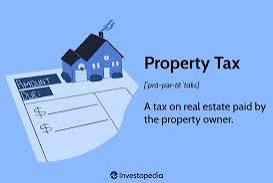Investing in property tax liens can be a lucrative endeavor, but it requires a thorough understanding of the process and potential risks. This guide will provide an in-depth look at property tax liens, how to buy them, and what investors should consider before diving into this unique investment opportunity.
What are Property Tax Liens?
Property tax liens arise when property owners fail to pay their property taxes. The government then places a lien on the property, which serves as a legal claim against the asset. This lien remains until the owed taxes are paid. Governments often sell these liens to investors to quickly recoup the unpaid taxes.
Why Invest in Property Tax Liens?
Investing in property tax liens can be attractive for several reasons:
High Returns:
Property tax liens can yield high interest rates, sometimes ranging from 5% to 36% annually, depending on the state.
Secured Investment:
The investment is secured by the property itself. If the property owner fails to repay the lien, the investor may eventually foreclose on the property.
Diversification:
Property tax liens offer a way to diversify an investment portfolio beyond traditional stocks and bonds.
How to Buy Property Tax Liens
Investing in property tax liens involves a few key steps:
Research:
Before investing, it’s crucial to research the process in a specific state or county. Each jurisdiction has its own rules and procedures for selling tax liens.
Attend Auctions:
Tax liens are typically sold at public auctions, either in person or online. Investors can attend these auctions and bid on liens.
Evaluate Properties:
Not all tax liens are created equal. It’s important to evaluate the properties associated with the liens to ensure they are worth the investment. Consider the property’s location, condition, and market value.
Place Bids:
During the auction, place bids on the liens of interest. Winning bidders pay the delinquent taxes and receive a certificate of purchase.
Monitor Investments:
After purchasing a lien, monitor the investment to ensure the property owner repays the taxes. If they fail to do so within the redemption period, the investor can begin foreclosure proceedings.
Risks and Considerations
While buying property tax liens can be profitable, it’s not without risks. Here are some factors to consider:
Redemption Periods:
Property owners usually have a redemption period during which they can repay the lien and retain ownership of their property. This period can vary from a few months to several years.
Property Condition:
The physical condition of the property can impact its value. Properties with significant damage or code violations may not be worth the investment.
Legal Complexities:
The process of foreclosing on a property can be legally complex and time-consuming. It’s important to understand the legal requirements and potential obstacles.
Market Fluctuations:
The real estate market can fluctuate, impacting the value of the property and, consequently, the return on investment.
Despite these risks, consulting with professionals who are experts in tax lien investing can significantly increase your chances of profitability.
Tips for New Investors
If you’re considering entering the world of tax lien investing, here are some tips to get started:
Start Small:
Begin with a few lines to understand the process and mitigate risk.
Educate Yourself:
Attend workshops, read books, and consult with experienced investors to gain a comprehensive understanding of the market.
Leverage Technology:
Use online platforms to research properties and participate in auctions.
Network:
Connect with other investors to share insights and strategies.
Common Misconceptions About Property Tax Liens
There are several misconceptions about property tax lien investing. Let’s debunk some of them:
It’s a Quick Way to Get Rich:
While tax lien investing can be profitable, it requires patience, research, and a strategic approach.
All Liens Lead to Property Ownership:
Not all liens result in property acquisition. Many property owners repay their liens within the redemption period.
It’s Only for Wealthy Investors:
Tax lien investing is accessible to investors of all levels. Many liens are available for a few hundred dollars.
The Future of Tax Lien Investing
The landscape of tax lien investing is continually evolving. Here are some trends to watch:
Online Auctions:
The shift towards online auctions has made it easier for investors to participate from anywhere in the world.
Increased Transparency:
Enhanced access to property data and auction information is helping investors make more informed decisions.
Growing Interest:
As more people learn about the benefits of tax lien investing, the market is becoming more competitive.
Conclusion
Investing in property tax liens offers a unique opportunity to earn high returns while diversifying your investment portfolio. By understanding the process, conducting thorough research, and considering potential risks, investors can navigate the world of tax lien investing successfully. Whether you’re a seasoned investor or just starting, the potential rewards make it an avenue worth exploring. So, take the plunge, buy property tax liens, and unlock the potential of this intriguing investment strategy.




